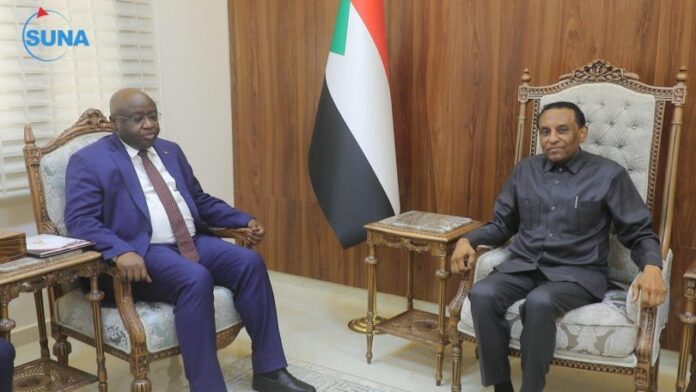Al-Yurae-Under mounting public pressure and repeated appeals, Sudan’s transitional Prime Minister Kamel Idris has announced what critics call a “cautious initiative” to regulate traditional mining and protect the environment.
During a meeting Sunday with Minerals Minister Nour Eldaim Mohamed Ahmed Taha, Idris emphasized the need to organize the traditional mining sector, address its environmental impacts, improve conditions for independent miners, and increase the use of modern technologies in mineral exploration.
Taha told reporters the prime minister was briefed on the ministry’s performance and its affiliated agencies as well as the challenges facing the traditional mining sector, including its effects on the environment and how better regulation could support the national economy. He outlined the ministry’s strategy to attract new investors.
“The prime minister stressed the importance of environmental protection and addressing the impacts of traditional mining, focusing on the well-being of local miners and the need for modern technology, particularly in identifying rare mineral sites,” Taha said, calling the meeting productive.
Public pressure and protests
The announcement comes amid rising public protests in Kalogi, Kadugli County, South Kordofan, where residents on Friday staged a demonstration organized by the Cyanide Opposition Committee. The protest followed the arrest of environmental activist and committee member Sheikh Akhrash by military intelligence in Tagmala on Thursday over his opposition to companies using cyanide to process mining waste, known locally as “karta.”
Demonstrators gathered in front of the county government offices, demanding Akhrash’s immediate release and decrying what they said was a campaign of intimidation against activists working to stop cyanide use in mining. They called the chemical a direct threat to the local environment and public health.
In a statement to Darfur24, the opposition committee insisted their cause is not political but rather a basic environmental and human rights issue affecting all area residents. The committee noted community resistance to cyanide mining spans more than a decade, and it warned authorities against framing activists as political opponents to discredit the environmental movement.
The committee has urged residents to join a peaceful protest planned for Monday to demand the removal of cyanide-processing companies and Akhrash’s release from military custody in Abu Jubeiha. “Repressive measures by authorities will not deter the community from pursuing its demands,” the committee said, vowing to continue peaceful action until their environmental and community safety goals are met.
The committee previously organized a protest on Monday, Aug. 11, giving the county executive 48 hours to expel companies using cyanide or resign, threatening further escalation. The committee rejected a proposal for a referendum on whether the companies should be allowed to remain, arguing that environmental safety cannot be negotiated.
Documents obtained by Darfur24 list the companies involved in extracting gold with cyanide, including Bagon Advanced Works, owned by former South Kordofan governor Adam Al-Faki, fueling concerns about conflicts of interest and environmental impact.
Cyanide use in mining remains a flashpoint in South Kordofan, Northern Sudan, and the Red Sea state, where years of protests have tracked the environmental damage linked to the chemical, including loss of plant life, livestock deaths, and groundwater contamination. Local communities continue to demand an end to cyanide-based mining operations.


